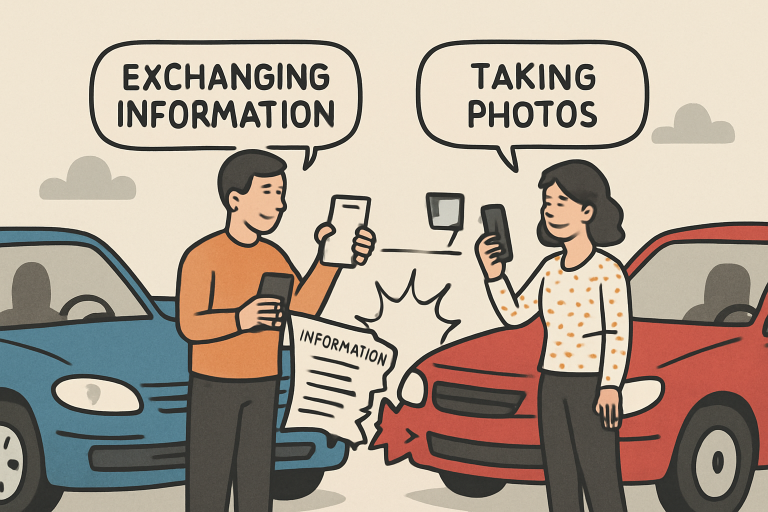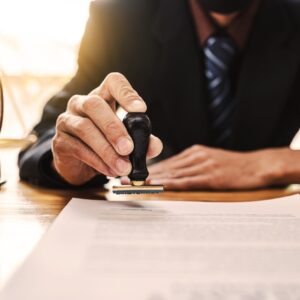Key Takeaways
- Learning the basic steps for a car accident can help keep everyone safe and protect important rights.
- Immediate action, such as calling for help and exchanging information, makes a significant difference.
- Documenting the scene and injuries plays a huge role in filing claims and seeking treatment.
- Knowing when to seek legal or medical help can prevent future headaches.
- National statistics highlight that being prepared reduces stress and errors after an accident.
Preparation Matters More Than You Think
Every time you get behind the wheel, it’s easy to assume nothing will go wrong. However, with millions of accidents annually, knowing what to do after a car accident helps you act quickly. The National Highway Traffic Safety Administration says being prepared reduces risk, stress, and complications. A proactive mindset is key for drivers.
One crucial step after a crash is to learn what experts advise. Local resources, such as the NHTSA’s road safety guides, offer useful checklists and step-by-step advice, making stressful moments easier. Reviewing reliable info beforehand provides peace of mind and practical benefits, helping you handle incidents effectively. To learn more about how to deal with car accidents, click https://www.thetxattorneys.com/southlake.
First Actions: Safety Comes First
The aftermath of a collision can be chaotic and stressful, often leaving those involved feeling overwhelmed and uncertain about what steps to take next. However, your primary concern should always be the well-being and safety of everyone involved in the accident. If the vehicles are still drivable and it’s safe to do so, carefully move them out of traffic to a designated, secure area to prevent further accidents or injuries. Turn on your hazard lights to alert other drivers of the hazard ahead. Immediately check yourself and others for any visible injuries, paying close attention to signs of bleeding, bruises, or incapacitation. Only attempt to assist others if you can do so without risking your own safety, and do not move anyone with serious injuries unless there is an imminent danger, such as fire. Call emergency services right away, providing them with your location and a clear description of the situation, even if injuries seem minor. Emergency responders are highly trained professionals equipped to handle various scenarios and ensure that any injuries or issues are addressed promptly and effectively, helping to prevent complications or further harm.
Exchanging Information the Smart Way
Once safety has been established, calmly exchange critical details with the other parties. This should include names, phone numbers, addresses, insurance providers, and vehicle registration details. It’s best to remain polite and not discuss fault or blame. Take clear photos of everyone’s ID and insurance cards, as well as the involved vehicles, license plates, and the accident scene. These details help prevent future disputes and provide your insurer with all the facts they require.
Proper documentation includes gathering contact information for any witnesses and noting the badge numbers of the responding police officers. This information can be crucial if there’s ever a disagreement about the facts. The Forbes Advisor guide on what to do after a car accident highlights that robust documentation is vital for protecting your legal and financial interests. Insufficient evidence leads to delays in repairs or claims and can hinder recovery efforts.
The Power of Documentation
Documenting every aspect of the incident establishes a factual record that will be referenced repeatedly. Grab as many photos as possible, including the positioning of vehicles, visible damages, close-ups of injuries, nearby traffic signs, skid marks, and even the road and weather conditions at the time of the accident. Written notes on the sequence of events, while they’re still fresh in your mind, often clarify confusing memories later. Many insurance companies list thorough documentation as a policyholder’s responsibility for smooth claim resolution. Additionally, collecting contact information from witnesses can provide valuable corroboration of your account. Keep a detailed record of any conversations with other involved parties or emergency services. Lastly, storing all these documents securely will ensure you have quick access when needed for claims or legal purposes.
Should You Call the Police?
It’s wise to alert local law enforcement after any crash, even those that initially seem minor. Police provide an objective accident report, which can be essential for insurance adjusters and future legal proceedings. In many states, reporting is a legal necessity if damages exceed a set amount or if anyone is injured or killed. Be sure to request a copy of the report or the report number before leaving the scene. This official documentation becomes a cornerstone for everything from medical bills to vehicle repair claims. Keep a record of the report for future reference. It can also be useful if you need to dispute any charges or provide evidence later on.
What to Avoid Saying and Doing
Politeness is always valuable, but avoid making statements that could be interpreted as admissions of fault, such as apologizing or guessing what caused the crash. Never sign documents unless they are specifically from responding officers or are required by law. Don’t post about the accident on social media—comments or photos, however innocent, can be used against you later. These are all areas where simple missteps can have long-term negative effects, including denied claims or liability lawsuits.
Medical Attention: Don’t Wait
It’s normal for symptoms of injuries such as concussions or whiplash to emerge hours or even days after the accident. Even if you feel fine, seek a prompt evaluation from a healthcare professional. Medical documentation provides critical support in insurance claims and ensures that injuries(visible or hidden) are addressed quickly. If emergency responders advise a hospital visit, follow their guidance without hesitation. Prioritizing your health is the best protection against lingering harm and legal complications.
When Legal Guidance Makes Sense
Navigating the legal and insurance aftermath of an accident can be confusing. When there are disputes over facts, injuries, or coverage, or if you just aren’t sure what to do next, consulting a legal professional makes sense. Lawyers can clarify your rights, help you communicate with insurers, and represent your interests in negotiations or court if needed. Countless accident victims have found that a short consultation led to better results and greater peace of mind.
Conclusion: Preparation Leads to Better Outcomes
Car accidents are often stressful and disorienting, but knowing what to do empowers drivers to protect both themselves and others. By combining readiness with reliable steps—centering on safety, information exchange, documentation, and expert guidance—you can greatly reduce both immediate and long-term challenges. Making a habit of reviewing resources, such as NHTSA’s road safety guides, ensures you’re always prepared for whatever the road brings.



